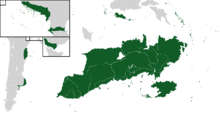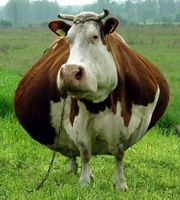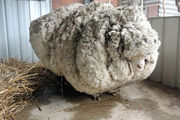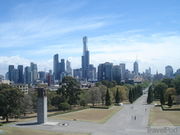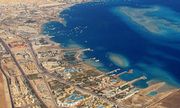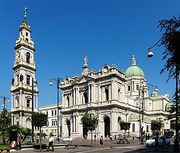Tuvaltastan
| The Democratic States of Tuvaltastan | ||||
|---|---|---|---|---|
|
||||
| Motto: Nihil Nic Gererentur | ||||
| Anthem: "O Great Tuvaltastan" | ||||
Green: Tuvaltastan ; Light Green: The UNAC
|
||||
Regional Map
|
||||
| Capital | Novosibirsk | |||
| Largest city | Shagonar | |||
| Official languages | Codexian and Kostuvian | |||
| Ethnic groups (2015 Estimate) | 77.8% Human
(97% of Humans are of Tuvalt origin) 20.5% Lupine 1.7% Other |
|||
| Demonym | Tuvalt, Tuva, rarely Tuvan | |||
| Government | Federated Republic | |||
| - | High Minister | Mark Lirakov | ||
| - | Chancellor | Alyona Petrovavich | ||
| - | Vice-Minister | Icarus Wazowski | ||
| Legislature | Parliament | |||
| - | Upper house | Hall | ||
| - | Lower house | Chamber | ||
| Area | ||||
| - | Total | 657,750 km2 N/A sq mi |
||
| Population | ||||
| - | 2018 estimate | 25,438,894 | ||
| - | 2015 census | 23,588,694 | ||
| - | Density | N/A/km2 N/A/sq mi |
||
| GDP (nominal) | 2015 estimate | |||
| - | Total | $652.062 billion | ||
| - | Per capita | $27,643 | ||
| Gini (2016) | 29.3 low |
|||
| HDI (2016) | .798 high |
|||
| Currency | Kirib (♅) |
|||
| Date format | MM/DD/YYYY | |||
| Drives on the | the right | |||
| Calling code | +17 | |||
| ISO 3166 code | TUV | |||
| Internet TLD | .tuv | |||
The Democratic States of Tuvaltastan, commonly known as Tuvaltastan (tuːvɔːltʌstæn), is a nation that exists on the continent Aurora that has a border with Xiopothos, Kostromastan, Thalria, Faethalria, Kostoria-Obertonia, Imperial Fandom, and exists north of Dragonia. Tuvaltastan exists between the latitudes 30 S and 45 S, and between the longitudes 100 E and 140 E. The nation, with a Nominal GDP per capita of $27,643, has an estimated population of 23,588,694 as of 2017. Tuvaltastan encompasses the three southernmost Auroran Lakes, those being Slova Lake, Ordlov Lake, and the northern half of Lake Nilovi, in order from west to east. The nation follows the southern coast of the continent, with Imperial Fandom splitting the coasts into two sections: The East Coast and The South Coast. Tuvaltastan also has dominion over seven islands, those being within the Crescent Archipelago, The Avut Isles, and the Far East Isles. The largest city, Shagonar holds an estimated 4,627,134 individuals and the capital Novosibirsk holds another 3,122,776. Shagonar and the fifth largest city Omsk are both part of the Shagonar-Nurov-Omsk Metropolitan Statistical Area, and hold a population of nearly 11 Million people. A mix between the size of the nation and the compactness of the country's population also allows for abundant farmland, of which 5% of the population maintains.
The history of Tuvaltastan is greatly intertwined with its neighbors Baykalia and Kostromastan, and goes back as far as 1,700 B.C.E., beginning with the Ancient Kostuvians and their large empire that encompassed central Aurora and a number of small islands north and south of the continent, as well as part of what is now modern-day Dragonia. The Kostuvian Empire existed for just over a millenium, and was succeeded by Salovia in 12 A.D. Salovia itself existed for nearly two thousand years with a few notable interruptions, until the three major Kostuv sects (Baykalians, Tuvalts, and Kostroms) began the Salovian Civil War. The three sects, after the Civil War, founded the three nations Tuvaltastan, Kostromastan, and Baykalia.
Contents
Etymology
The word "Tuva" in Tuvaltastan is of direct origin to the word "tyrv," which originates from the dead language of the ancient Kostuvians. "Tyrv" translates to "grassland" in Codexian, and "tyvnal" in Salovian.
History
Separation of Salovia
(See Salovian Civil War)
Beginnings of Tuvaltastan
Tuvaltastan, along with Kostromastan, were officially independent on the day October 17th, 2005. During the first year of its existance, the nation worked on writing the constitution of Tuvaltastan. The first administration went into office in the year 2006, and came out of office in 2008. There were issues in making a completely new nation from the ground up, with entire institutions having to be established, the destroyed infrastructure having to be replaced, and the food sources that were nearly depleted had to be restored. The aforementioned issues were the focus of the first administration, and were relatively successful. The next two successive administrations added to the accomplishments of the first administration (see List of Administrations of Tuvaltastan for more info).
Modern-Day Tuvaltastan
The current administration is currently attempting to instill peaceful diplomatic relations with both Kostromastan and Baykalia. The administration's ultimate goal, however, is to connect itself to the global market, and has established trade ties with many Gondwanan and Atlantian nations.
The Kost-Tuva War (2009-2010)
This war was between Tuvaltastan and Kostromastan, and lasted 11 months before ending on a peace treaty that ended the war. It was catalyzed by many skirmishes between Kostro and Tuvalt civilians along the northern portion of Tuvaltastan and the eastern corner of Kostromastan, and eventually politicians in Tuvaltastan called for a war to settle the border dispute. The Hall approved of the war, and the war killed approximately 12,000 Tuvalts and 11,000 Kostros. The war also resulted in Tuvaltastan keeping its northern border with Xiopothos, and leaving Kostromastan landlocked.
The Tuva-Avuti War (2011-2016)
Following the expansionist mindset of their Kostuv predecessors, the Tuvalt Government had begun militarily occupying The Kingdom of Avutili. The natives of the island used guerrilla war tactics against the Tuvalt military, who had never stepped foot on the Avut Island. The native Avuti had been successful at keeping the Tuvalt Government in the northern half of the island, until December 3rd, 2016, when reinforcements moved to the island from the south and began surrounding the natives, eventually capturing the entire archipelago for Tuvaltastan. A few weeks afterwards, the Tuvalt government also moved towards two other archipelagos, The East Crescent Isles and the Far East Isles. The Far East Isles contained an endangered subspecies of the Dragonhawk, and were duly converted into the Far East National Park and Nature Reserve. Plans have been in place to turn the Crescent Isles into a commercial and business hub, and for the southernmost island of the Avut Isles into a military facility. After being integrated into Tuvalt society, the native Avuts have been protesting, calling for more rights to their land. A bill was put through the Chamber to determine whether the Avuts should be given a reservation on April 2nd, 2017, and the Chamber voted 39-6 to allow for the largest island in the Avut Archipelago to be converted into the Avut Autonomous Domain.
Politics
Governmental System
(Main article: Government of Tuvaltastan)
The Governmental System of Tuvaltastan consists of three branches that heed to a particularly rigorous checks-and-balances system. Every two years, a general election takes place for every Legislative seat, with the Executive positions undergoing a yearly vote of confidence on March 17th, the Independence Day of the country. Judicial positions are selected from a series of nominees, and are selected by an anonymous group of 12 randomly-selected citizens of Tuvaltastan, who must unanimously agree on who to appoint. There are limits on how long one person can be in office, however: for the Executive positions, the term limit is three, and for the Legislative the term limit is six. Judges serve a lifelong term until retirement, resignation, or death.
Political Parties
There exist seven major political parties in Tuvaltastan, all of which have had individuals in a governmental position:
- Democratic Party
- Socialist Party
- Conservative Party
- Liberal Party
- Communist Party
- Globalist Party
- Nationalist Party
Executive Branch
- High-Minister
The High-Minister position is primarily a ceremonial one, however the High-Minister holds the position of being the highest authority in foreign affairs, often holding talks and summits with other neighboring nations.
- Vice-Minister
The Vice-Minister takes over the job of High-Minister when the High-Minister is absent. When not substituting, the Vice-Minister focuses on domestic affairs along with the Chamber. The Vice-Minister and the Speaker of the Chamber have executive authority over the Chamber.
- Chancellor
Leader of the Tuvalt Military and the primary executive position, and can propose declaring war on a nation to the Hall and Chamber. If Tuvaltastan does declare war, the Chancellor has the power to declare total war, after a vote among the three primary executive positions. During times of war, the Chancellor takes on a much more militaristic role, and temporarily hands the executive powers over to the High-Minister, and takes over the duties of the position.
Legislative Branch
- The Hall
The Hall is is a population-based representative legislature that votes on Foreign Policy issues, and consists of 101 representatives.
- Speaker of the Hall
Manages and keeps order in the Hall.
- The Chamber
The Chamber is a population-based representative legislature that votes on Domestic Policy issues, and consists of 47 representatives and 5 executive representatives (for each major city).
- Speaker of the Chamber
Manages and keeps order in the Chamber.
Judicial Branch
- Supreme Court
The Supreme Court determines what bills are constitutional or not, and consists of nine judges.
Electoral Process
The electoral process for each position requires each candidate to take part in a simulation that focuses on the issues and everyday duties of the position each candidate is running for. As well as the simulation, a popular vote will take place. Each candidate's performance on the simulation will be scored. The candidates' score and their votes will be combined into an average, and whichever candidate has the highest average wins the election.
Domestic Policy
Poverty
The poverty rate is 2.9%, as of 2017. It was lowered from 12% in 2007 due to multiple programs set up by the Tuvalt Government to address the issue.
Civil Rights
Everyone in Tuvaltastan has equal rights, which has been defined in the Tuvalt Constitution. However, even though Baykals and Kostroms have the same rights as Tuvalts, many Tuvalts nonetheless discriminate against them.
Voting Age is 17
Driving Age is 18
Drinking Age is 16
Economy
The Economy of Tuvaltastan is primarily focused around Kemerovo and Shagonar, with the export of goods being the main source of revenue. In Novokuznetsk, in contrast to Kemerovo and Shagonar, many services are exported such as architectural design and fashion design.
- Kemerovo, Port Barnaul, and Shagonar
The vast majority of mined goods from Tuvaltastan are sent to these three industrial centers, and upon arrival are sent to their respective industries to either be refined or processed into a number of products, such as vehicle engines and shells, computer chips, nuclear reactor rods, batteries, and bells, to name a few. The ports along the coasts of these cities ship the materials and products out of the cities.
- Novokuznetsk and Novosibirsk
Although few products come from the ports of Novokuznetsk and Novosibirsk, there is a current boom in services that are being sent abroad, in the sense that individuals of certain skills travel abroad to provide their services, those services including architectural design, teaching, fashion design, training, various medical services, and others.
Education
The Tuvalt Government has privatized education, but not without any regulations: All individual schools must teach everything that is required, which includes World, Regional, and National History, Mathematics up to Pre-Calculus, Biology, Chemistry, Language Arts, and Health Education. The schools must also follow international bipedal rights regulations.
Foreign Policy
Trade
Tuvaltastan is part of the UNAC, which has established a continent-wide trade agreement. Many Atlantian nations have also established close trade ties with Tuvaltastan.
Neutrality
Tuvaltastan claims to be a neutral nation, and has historically maintained neutrality in recent conflicts, including the Auroran-Pacific War.
Immigration
Tuvaltastan has a nondiscriminatory immigration policy, which may be subject to change in the future, due to anti-immigrant sentiment towards refugees fleeing the ongoing civil war in Imperial Fandom. A total of 2 million refugees have been relocated to camps near the Tuvalt-ICCF border, and the number continues to grow.
Military
(Main article: Military of Tuvaltastan)
The military of Tuvaltastan has a budget equal to 4.2% of Tuvaltastan's GDP, which is $27,386,604,000.
Culture
Literature
There are a multitude of novels and poems written by Tuvalts, including the comedic novel "Then There Was the Pelican," the feel-good "Merrier than Christmas," the memoir "A True Trip," and the comedy poem "Freaks."
Customs and Traditions
Food
Festivals
- New Year's Day Festival
A festival that takes place on New Year's Day, and is typically celebrated with Norgov bread. (see Holidays)
- Independence Day Festival
A festival that takes place on Independence Day. A common meal eaten during the festival is cheese rice (see Holidays).
- Halloween Festival
A festival that takes place on Halloween (see Holidays).
- Mendelov Day Festival
A festival that honors the heroism of Mendelov. It lasts the entire day, and ends on sunset.
Holidays (Chronological Order)
- New Year's Day (Jan. 1st)
New Year's Day is celebrated to honor the accomplishments of the year passed, and to hope for a better new year.
- Torotova Day (First Monday of February)
Celebrates the hero Petrie Torotova, who, along with his remaining crew of five, recaptured the current capital city of Novosibirsk from Kostrom forces (see Salovian Civil War).
- Independence Day (March 17th)
Celebration of Tuvaltastan's Independence from Salovia
- Week of Rentorov (Second Week of May)
During the Salovian Civil War, the Northern Tuvalti people suffered a horrific famine due partly by a drought, but primarily by the Kostrom forces destroying 90% of Tuvalti crops in the area and killed off most of the livestock there as well. This famine resulted in a month and a half of hunger, during this time millions of people had starved to death, while others migrated to other Tuvalt cities. In order to remember those who perished, many Tuvalti people fast during the second week of May. However, it is not required to fast during this period.
- Heatstroke Prevention Holiday (Last Full Week of June and First Full Week of July)
Due to the extreme heat during the summer, the Tuvalti government began issuing a mandatory three-week holiday in 2008, so as to end the heatstroke epidemics that occurred during the Tuvalti summers.
- Sorozavich Day (August 17th)
Celebrates Romuli Sorozavich, who saved the Tuvalti Constitution and numerous other important documents from an inferno in 2009.
- Mendelov Day (September 11th)
Commemorates a woman only known as Lira Mendelov (although this is not her actual name) who prevented the destruction of Novosibirsk in 2000, as the Baykalian government had planted a nuclear device in the center of the city. Mendelov removed the device from its place, and drove it away from the city, where it detonated in her car. Mendelov perished in the explosion, being the only casualty, along with minor damage to the outskirts of Novosibirsk. It is unknown how Mendelov knew of the nuclear device. However, the dominant theory is that she was the wife of a major Baykalian general, as the Baykal's wife was filed as a missing person 24 hours after the detonation.
- Halloween (Third Friday of October)
A day in which people of all ages go about and have fun dressing up as scary, funny, or just plain weird creatures. In short, it is a day for spoopy scary fun.
- Christmas Day (December 25th)
Traditionally celebrates the birth of Jesus Christ, but is more about giving than celebrating.
- New Year's Eve (December 31st)
A day of remembrance of the events that took place during the year that had just passed.
Geography
Climate
Because of its southern position in the world, Tuvaltastan has a very cold climate. However, the areas closer to Xiopothos are more arid, and is considered a desert due to the low yearly rainfall. The southern and western parts of the country are more temperate than the northern areas, and is where most of the population lives. The eastern islands are quite diverse in terms of climate, with the Crescent Islands having rather arid conditions, with the Far East Islands hosting a surprisingly tropical climate. The Avut Isles are colder, but nonetheless are able to host a temperate climate.
Ecosystem
Biodiversity
Due to the preceding nation of Salovia's beliefs (see Encroachment), there is very minimal biodiversity within Tuvaltastan. The government has been trying to reverse this with genetic engineering, but so far the efforts have been in vain.
Environment
Encroachment
The dominant beliefs of The Kostuvian Empire and Salovia was that every living thing that could not be used by humans were inferior to humans, driving many endangered species to extinction. As such, Tuvaltastan's government has made it top priority to protect the remaining plants, animals, and other living things and their habitats.
Conservation Efforts
The Tuvalt government has designated the remaining wildlife as protected, and as such cannot be tampered with whatsoever. The lakes of Tuvaltastan are also protected, but licensed fishermen are allowed to fish during specific times of the year.
Remaining Flora and Fauna
(Main Category: Flora and Fauna of Tuvaltastan)
Economy
Currency
Tuvaltastan, along with many other UNAC members, use the Kirib, which is one of the most-traded currencies.
Agriculture
Livestock in Tuvaltastan
The Tuvalt farmers altogether maintain one-third of the area of Tuvaltastan, all of it dedicated to growing food. To make raising livestock more effective, many farmers began working together to create a new subspecies of the five major livestock. The current subspecies of livestock have been dubbed "Tuva livestock," due to some unique characteristics that the animals have developed. Two of the subspecies have also developed the ability to produce larger-than-normal amounts of offspring. It is unknown why.
Note: All the livestock listed are "Tuva livestock," as mentioned before.
Cattle
Tuva Cattle are a subspecies of the typical cattle that evolved in the farmlands of Tuvaltastan. When mature, the cattle have 50% more meat than the typical cattle. The females' udders contain 30% more milk than the typical cattle as well.
Sheep
Tuva sheep are a subspecies of sheep that evolved in the farmlands of Tuvaltastan. The Tuva sheep evolved to grow their fleece 80% longer than typical sheep, producing more clothes per sheep, and also evolved to have 5% more meat than normal sheep.
Chickens
Tuva chickens are a subspecies of chickens that evolved in the farmlands of Tuvaltastan that produce eggs at a rate 80% faster than typical chickens, and also have 10% more meat on them. The Tuva chickens do not have wings, and as a result, chicken wings are no longer a food in Tuvaltastan.
Llamas
Tuva llamas are a subspecies of llamas that evolved in the farmlands of Tuvaltastan that are much stronger than the typical llama. A Tuva llama is, on average, able to carry four times its weight, and the fur of the llamas have become softer, and as such are now used in clothing in Tuvaltastan.
Overpopulation Issue
Tuva Livestock have become such a popular alternative to traditional livestock in Tuvaltastan, that the populations of these animals is threatening the habitats of the native species. This has resulted in an overpopulation issue, which has been resolved through the exportation of surplus offspring to other countries, the main importing country being Xiopothos, with an occasional large purchase from the Oan Isles.
Crops
Due to the climate during the summers and winters of Tuvaltastan, biodomes were constructed so as to simulate the climates in which the crops listed below thrive in. The biodomes are located on the outskirts of the largest five cities.
| Crop Name | Production (Thousands of Lbs.) | |
|---|---|---|
| Total | 1,131,324 | |
| Wheat | 562,901 | |
| Jackfruit | 401,796 | |
| Corn | 364,886 | |
| Hemp | 103,344 | |
| Quinoa | 98,152 | |
| Mango | 1,240 | |
Industry
The nation of Tuvaltastan's primary Industry is mining, with over 60% of exports being minerals dug out of the ground. The city of Kemerovo is one of Aurora's major industrial centers. In Kemerovo, there are five primary industrial sections: The Textile Sector, The Manufacturing Sector, The Mining Sector, The Services Sector, and The High Tech Sector, the Mining Sector being the largest.
Science and Technology
Science and Technology make up a substantial portion of the Tuvalt Governmental budget, as this field ranges from a simple car mechanic store to a space station designed to simulate gravity to even artificial beef. 3D-Printing is a very commonly-used technology for building structures in a quick fashion, with many houses now being built in a few days rather than a few weeks.
Aeronautical Science and Technology
Currently, there are two space stations set up in space by Tuvaltastan, those being the TSS1 and TSS2. The TSS1, however, will soon become part of an international space station called the Urth Space Station, or USS. The TSS1 will be integrated into the USS, in particular the measuring technology, which includes the ACE (Atmospheric Composition Examiner), the EMUR (Electromagnetic and Ultrasound Reader), and the EL (Exoplanet Locator). Plans have also been developed to send a space probe out to the twin system Fidelma and Eithne, but the Aero Force has not yet executed the plan, as a few kinks have to be worked out.
Another major innovation in technology that is being used in aerospace is the food synthesizer, which uses small DNA samples of different foods to "print" them. The synthesizer has managed to make burger patties, cheese, and even lettuce. The technology is in prototype stages at the moment, but is believed to become available to the public in 2021.
Agricultural Science and Technology
The TDA (Tuvalt Department of Agriculture) is the main leader in Agricultural innovation, and has pioneered many aspects of vertical farming, including an efficient way to grow rice vertically. The TDA has also studied in detail the best conditions for different species to grow, and most vertical farms and greenhouses have been set up to meet these conditions. Their primary objective is to regulate and monitor the foodstuffs produced within Tuvaltastan, measuring
Demographics
Population
| City Name | Population of City | |
|---|---|---|
| Total | 21,937,798 | |
| Shagonar | 11,309,136 | |
| Novosibirsk | 8,684,302 | |
| Kemerovo | 998,165 | |
| Novokuznetsk | 794,682 | |
| Omsk | 619,974 | |
| Port Barnaul | 326,221 | |
At one time, the Ghost City of Rentorov hosted a total of 3,922,163 people. However, due to the Rentorov famine, there are no people left in the Ghost City of Rentorov. The city's surviving inhabitants relocated to Port Barnaul and other surrounding settlements. It is rumored that the black market has established itself in Rentorov.
Ethnicity
| Ethnicity | Population of Ethnicity | |
|---|---|---|
| Total | 23,588,694 | |
| Kostuvian | 11,029,842 | |
| Human | 7,322,164 | |
| Peregrin | 4,835,681 | |
| Lupine | 281,029 | |
| Xiopothan | 119,978 | |
Religion
Although 15.5 million people claim to be Catholic, 83% have reported they do not go to church. 95% of those people celebrate only Christmas and Easter. Until the 1600's, Kotvarianism was the dominant religion. However, a mix between pandemics and missionaries replaced Kotvarianism with Catholicism. There is a minority of 50 Clarityists. Unsure of how these worshippers ended up in former Salovia, many experts have theorized that they are refugees that entered Aurora illegally during Fortuna's War Against Caliphate Aggression.
(NOT READY FOR USE)

|
Salovia | 
|
|---|---|---|
| Main article: Salovia | ||
| Important Topics: Culture ♦ Unonian ♦ Vayan Catholicism ♦ Veskono ♦ Vulpine ♦ Armed Forces ♦ Military Ranks and Uniforms | ||
| Government: Kivreskov ♦ Premier ♦ Ikrisia Levinile ♦ Political Parties ♦ Foreign Officers | ||
| History: Ancient Vekaiyu ♦ The Time of Troubles ♦ Era of Good Feelings ♦ Trade Leagues ♦ Expansionist Vekaiyu ♦ Partitions of Vekaiyu ♦ Imperial Vekaiyu ♦ Vekaiyu Under Max Venavle ♦ Vekaiyu Under Selvala McEva ♦ 2010 Vekaiyun Civil War | ||
| Important Figures (Past and Present): Ikrisia Levinile ♦ Leina Kivelevov ♦ Max Venavle ♦ Selvala McEva ♦ St. Aiya ♦ Todd Leyuski | ||
| Sports: Sports in Vekaiyu ♦ Olympic Council ♦ Sport Uniforms ♦ Fifth Summer Olympics ♦ Sixth Winter Olympics ♦ Seventh Summer Olympics ♦ Eighth Summer Olympics | ||


